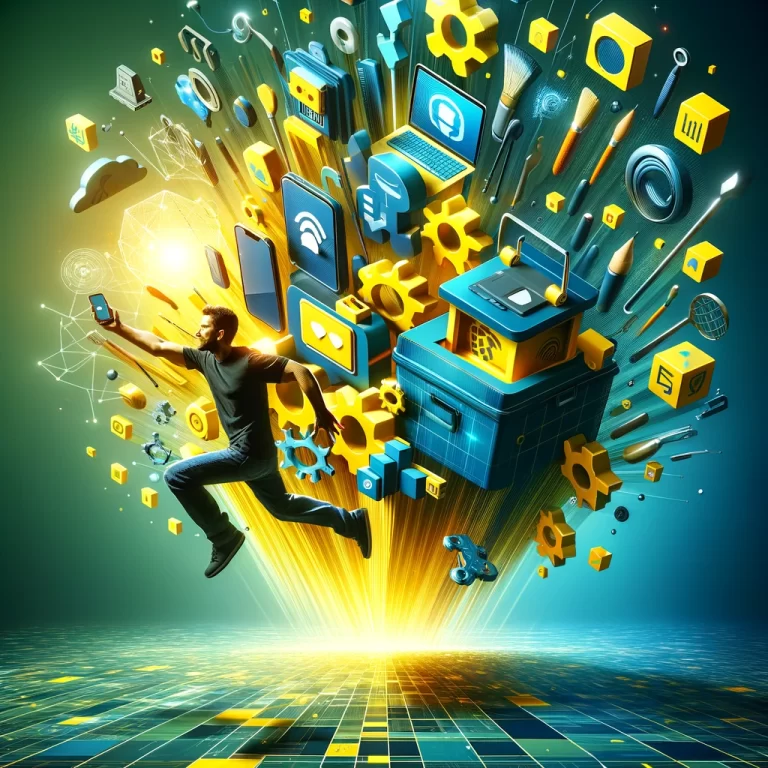Revolutionizing Customer Interaction: Chatbots in the Restaurant Industry
In the dynamic landscape of the restaurant industry, chatbots have emerged as pivotal tools for enhancing customer service and operational efficiency. A restaurant chatbot is not just a tech novelty; it’s a versatile assistant capable of handling reservations, displaying menus, and taking orders. For businesses, incorporating chatbots on their websites can significantly boost SEO performance by improving user engagement and dwell time.
Key Takeaways
| Aspect | Restaurants | Tourism |
|---|---|---|
| Primary Function | Reservations, Orders, Feedback | Itinerary Planning, Bookings |
| Customer Engagement | High (through interactive UI) | High (tailored to preferences) |
| Technology Used | AI, Machine Learning | AI, Machine Learning |
| Impact on Decision Making | Influences via Reviews/Feedback | Influences via Instant Bookings |
| User Demographic | General Public | Millennials, Business Travelers |
| Example Chatbots | Varied (e.g., for ordering) | Hipmunk, Mezi, SnapTravel |
| Integration | Websites, Messaging Apps | Mobile Apps, Messaging Platforms |
Enhancing Customer Experience with Chatbots
Restaurants utilizing chatbots witness a remarkable improvement in customer engagement and satisfaction. These AI-powered assistants interact with customers through an intuitive, conversational interface, making recommendations, processing orders, and offering special deals. This interactive approach aligns perfectly with strategies for building your brand in 30 days, where engaging and retaining customer attention is crucial.
Chatbots and Customer Decision Making
With approximately 87% of clients consulting online reviews before patronizing a local business, chatbots play a vital role in shaping these perceptions. They gather valuable feedback, influencing potential customers’ decisions. Integrating chatbots with effective online review management strategies, as outlined in “How to Benefit from Reviews: A Roadmap“, can significantly enhance a restaurant’s online reputation.
Chatbots in Tourism: Catering to the Modern Traveler
As the tourism industry evolves, so do the needs and preferences of its clientele, particularly millennials. This demographic, known for its affinity for technology and autonomy in travel experiences, increasingly relies on chatbots for planning and managing their trips. Travel chatbots, serving as virtual travel agents, are adept at creating personalized itineraries, suggesting destinations, and assisting with bookings. For businesses focusing on marketing strategies to grow your business, integrating travel chatbots can be a game-changer, attracting a tech-savvy audience and providing seamless customer service.
Personalized Travel Assistance
Travel chatbots like Hipmunk and Mezi demonstrate the advanced capabilities of these AI tools. They offer personalized travel suggestions, handle flight and hotel bookings, and even adapt to user preferences over time. As they can handle complex travel arrangements effortlessly, enhancing the overall customer experience.
Expanding Access Through Messaging Platforms
The integration of chatbots into popular messaging platforms like Facebook Messenger marks a significant shift in how travel services are accessed and utilized. This approach particularly resonates with millennials, who favor the convenience and immediacy of messaging apps. For companies exploring consistent social media posting, leveraging chatbots on these platforms can enhance their social media strategy, offering real-time assistance and engagement to potential travelers.
In conclusion, chatbots in the restaurant and tourism sectors are not just about automation; they’re about creating a more personalized, efficient, and engaging customer experience. As these industries continue to embrace digital transformation, chatbots stand out as innovative tools that can significantly enhance customer interaction and business operations.

Strategic Implementation of Chatbots in Restaurants and Tourism
Customizing Chatbots for Enhanced User Experience
In the restaurant industry, customizing chatbots to align with the brand’s voice and menu offerings can significantly uplift the customer experience. For restaurants focusing on setting up and filling a content calendar, integrating chatbots can provide a consistent and engaging way to interact with customers, promoting daily specials or upcoming events in line with the content strategy.
Maximizing Chatbot Efficiency in Tourism
Tourism websites can maximize chatbot efficiency by tailoring them to handle complex travel inquiries and bookings. This is especially useful for businesses that aim to write a social media strategy for 2023. By incorporating chatbots into this strategy, tourism websites can engage with customers on social media platforms, offering instant travel suggestions and booking services, thus enhancing the overall user experience.
Chatbots as Virtual Travel Assistants
In tourism, chatbots can function as virtual travel assistants, offering detailed information about destinations, accommodations, and local attractions. This aligns perfectly with strategies for growing your business with marketing, as chatbots can help in upselling and cross-selling various travel services, thereby increasing revenue opportunities.
Integrating Chatbots with Social Media
The integration of chatbots with social media platforms is a strategic move for both industries. For restaurants and tourism businesses, leveraging chatbots on social media channels can greatly enhance customer interaction. Following a simple 3-step guide to getting started with a social media audit, companies can identify the most effective platforms for their chatbots, ensuring they are reaching their target audience effectively.
The Future of Chatbots in Service Industries
The future of chatbots in the restaurant and tourism sectors looks promising. As technology continues to evolve, these AI-powered assistants are expected to become more sophisticated, offering even more personalized and efficient customer interactions. For businesses in these industries, staying ahead of the curve in chatbot technology will be crucial for maintaining competitive advantage and delivering exceptional customer experiences.
The Future and Emerging Trends of Chatbots in Restaurants and Tourism
Advanced Personalization through AI
As AI technology evolves, chatbots in both industries are expected to offer even more sophisticated personalization. This could mean suggesting menu items based on past preferences in restaurants or recommending travel destinations aligned with a traveler’s interests and history.
Seamless Integration Across Platforms
Future chatbots will likely be integrated seamlessly across various digital platforms, from websites to social media to mobile apps. This cross-platform presence will ensure a consistent and efficient customer experience.
Predictive Analytics and Proactive Engagement
Emerging chatbots will harness the power of predictive analytics, allowing businesses to proactively engage with customers, anticipate their needs, and offer solutions before they even ask.
Voice-Activated Chatbots
Voice technology is expected to play a significant role in the evolution of chatbots. Voice-activated chatbots could provide a more natural and accessible way for customers to interact with services, especially in the tourism industry where hands-free assistance can be invaluable.
Ethical AI and Privacy Considerations
As chatbots become more advanced, ethical AI and privacy considerations will become increasingly important. Ensuring that these tools are used responsibly and that customer data is protected will be a key focus.
Chatbots are set to become an even more integral part of the customer service experience in the restaurant and tourism industries. Their evolution will bring about more personalized, efficient, and engaging interactions, helping businesses cater to the ever-changing needs and preferences of their customers.




